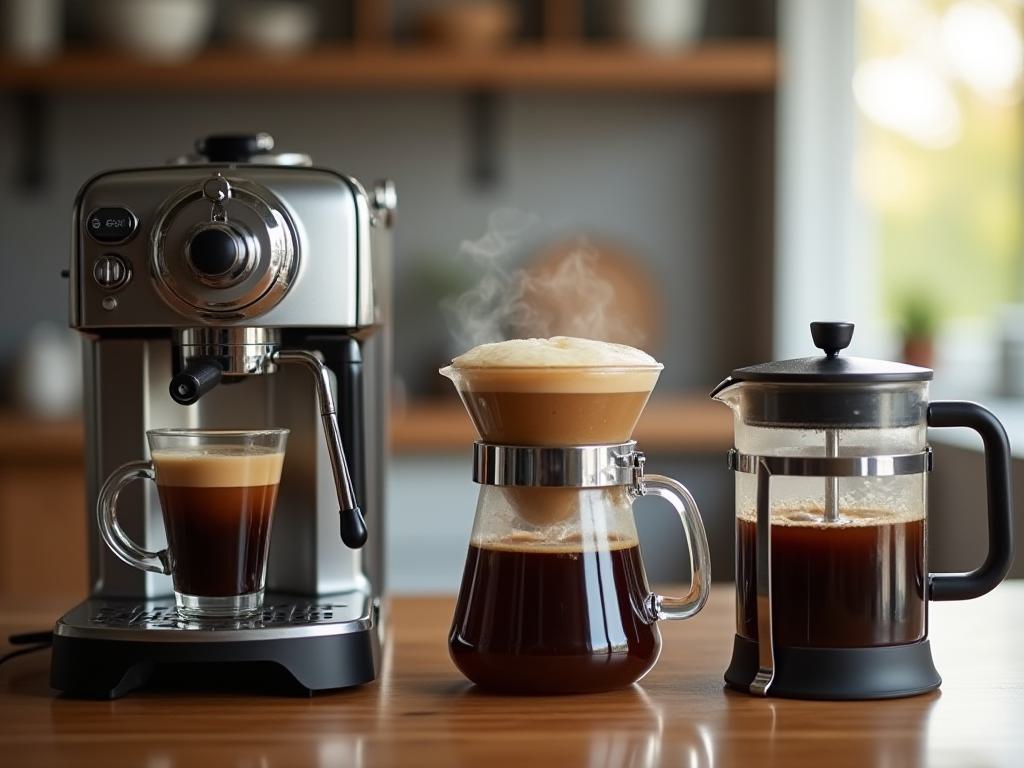Did you know that a cup of coffee has 70 to 140 milligrams of caffeine? What a range! We drink coffee for the buzz, but few know how much caffeine is in a cup of coffee.
Coffee has many forms, from your morning espresso to your tall Starbucks drink. The type of coffee and its preparation determine its effects. Different coffees and their effects will show us how they make us feel.
Learn how many calories are in your favorite coffee. Also covered: Famous coffee brands’ caffeine content. Ready to discover these secrets?
Let’s get started!
Understanding the basics: What is caffeine?
Wonder why morning coffee wakes you up? It all comes from caffeine, which is found in coffee beans, tea leaves, and cacao pods. They say it’s good for keeping people alert and focused.
In the brain, caffeine acts on adenosine receptors. Adenosine causes sleep and relaxation. Caffeine blocks these receptors, preventing drowsiness and increasing energy.
As for energy, we use natural caffeine. It’s not just coffee that works. Caffeine in tea also exists in smaller amounts. This gives us different ways to experience caffeine—from a light tea buzz to a strong espresso jolt.
The way caffeine works is really neat. It helps the brain and body communicate faster. This is why we feel awake and less tired after drinking something with caffeine. Researchers have thoroughly studied this action on adenosine receptors.
That’s why we drink coffee to combat fatigue.

What Does a Cup of Coffee Contain?
Ever wonder what’s in your coffee? It depends on the bean type, roast level, grind size, and how much you pour. Much goes into that morning brew.
Factors influencing caffeine content
Different beans have different amounts of caffeine. Robusta beans pack more caffeine than Arabica beans. The roast color is also important. Light roasts contain more caffeine than dark roasts—this may surprise some.
The grind size is also important. A finer grind yields more caffeine. More coffee equals more caffeine, but size also influences how much you drink.
Different Brewing Methods
How you prepare your coffee affects how much caffeine it contains. Some methods:
- Espresso:
A small but powerful espresso is strong because of the beans’ high pressure and fine grind.
- French Press:
Because it steeps longer and grinds more coarsely, this method extracts more caffeine with a more robust flavor.
- Drip Coffee:
This is an everyday choice for many, offering a moderate amount of caffeine through its brewing technique.
Coffee content varies between styles—from espresso to French press.
The National Coffee Association says that brewing style matters for caffeine levels.
Knowing these details makes the perfect cup of coffee for you. So consider these points next time you brew and enjoy your coffee more fully.
Caffeine and health implications.
Knowing how caffeine affects us helps us make better daily choices. Know when to take your caffeine. And this guides our daily lives.
The recommended daily intake
The FDA recommends adults limit caffeine to 400 milligrams daily. It comes to around four cups of coffee. Because people react differently to caffeine, pay attention to your body‘s signals.
Moderate coffee consumption is generally OK; adjust according to personal preference.
The effects on sleep and mood.
Caffeine affects sleep and mood. Too much caffeine in the evening may disturb your sleep. That might cause caffeinated insomnia and poor sleep quality.
Even though a little caffeine can improve focus and mood temporarily, too much can cause anxiety and mood swings. To prevent these effects, have caffeine early.
Knowing your caffeine sensitivity also lets you enjoy the benefits without the downsides.
Does Dark-Roast Coffee Contain More or Less Caffeine Than Regular Coffee?
Contrary to popular belief, the caffeine content in darkroast coffee is often lower than that in regular coffee. While darker roasts have bolder flavors, the roasting process can reduce caffeine levels. If you’re seeking a stronger caffeine boost, lighter roasts might be the better choice for higher caffeine content.
Conclusion
We’ve looked at caffeine in coffee—the tools to make smarter coffee choices. So we learned about caffeine, how much we drink, and its health effects. This knowledge helps us combine coffee enjoyment with a healthy life.
The caffeine in your coffee depends on things like the coffee bean, brew method, and drink size. Knowing these might help us enjoy caffeine without the downsides.
Enjoy that morning energy boost, but stay within healthy limits.
When managing caffeine, balance is key. Coffee‘s more than a drink; it’s a lifestyle. It happens in our everyday routines and social lives. So, with this caffeine knowledge, make smart choices for your health.
Here’s to drinking coffee the right way and living life in balance!
FAQ
What makes a cup of coffee caffeine-free?
How does coffee concentration change with different brewing methods?
How does caffeine work?
But how much caffeine should I drink daily?
Can caffeine affect my sleep?
How does caffeine intake influence mood and cognitive performance?
What health risks does caffeine pose?




